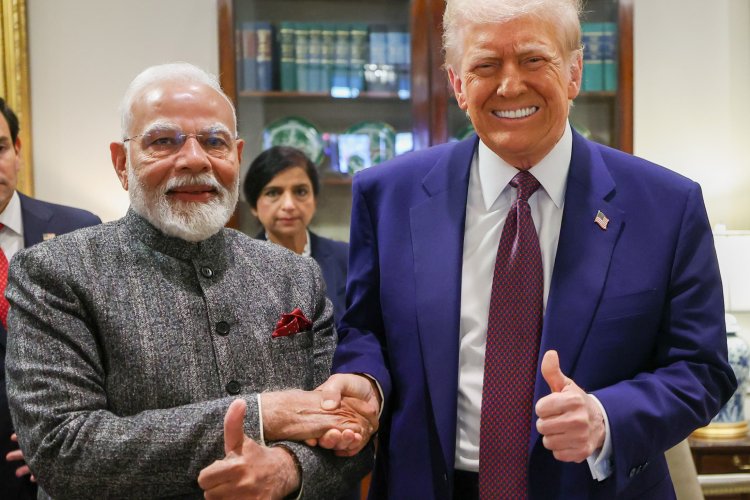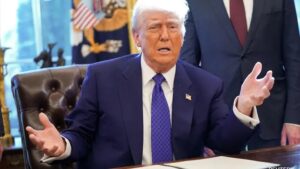
The All India Kisan Sabha (AIKS) has issued a strong statement demanding that the Indian government withdraw from ongoing trade negotiations with the United States and refrain from entering into any free trade agreements (FTAs) that could adversely affect the agriculture, dairy, and fishing sectors.
The All India Kisan Sabha (AIKS) has issued a strong statement demanding that the Indian government withdraw from ongoing trade negotiations with the United States and refrain from entering into any free trade agreements (FTAs) that could adversely affect the agriculture, dairy, and fishing sectors. The AIKS accuses the Narendra Modi-led government of capitulating to U.S. demands, particularly those that would ease tariff and non-tariff barriers for American agricultural products. India is in potential talks with the European Union, New Zealand and other countries as well as mega FTAs like the Indo-Pacific Economic Framework for Prosperity involving 14 countries.
In a statement Ashok Dhawale, President and Vijoo Krishnan, General Secretary, AIKS highlighted concerns over potential zero-duty frameworks on imports of specific quantities of lentils and peas, similar to agreements made with Australia. They argue that such measures, given the substantial subsidies provided to American farmers, would result in highly unequal trade agreements detrimental to Indian farmers.
The organisation warns that the proposed bilateral trade agreement could devastate Indian dairy farmers by allowing a significant influx of U.S. dairy exports if tariffs and market restrictions are lifted. Additionally, they raise alarms about U.S. intentions to increase exports of wheat, maize, soybeans, almonds, and various horticultural products to India, which could undermine domestic production and threaten the livelihoods of Indian farmers.
The AIKS also points to the crisis among Indian cotton farmers, noting a steady decline in annual cotton production and rising farmer suicides. They criticize the government’s move to increase the Maximum Retail Price of Bollgard II cotton seeds, suggesting it benefits large agribusinesses and paves the way for cheaper U.S. cotton to capture the Indian market.
Furthermore, the AIKS expresses concern over the government’s “Mission 500,” aiming to double total trade to $500 billion by 2030, stating that such negotiations are being conducted without transparency or parliamentary oversight. They contrast India’s approach with countries like China, Canada, and Mexico, which have resisted U.S. trade pressures, and question why India is capitulating to U.S. demands.
In light of the upcoming visit of U.S. Vice President J.D. Vance and the United States Trade Representative in April, the AIKS calls for nationwide protests against what they describe as the government’s total capitulation to U.S. imperialism. They urge all Indians, irrespective of political affiliations, to unite under the slogan “Vance Go Back! India is Not For Sale!”





